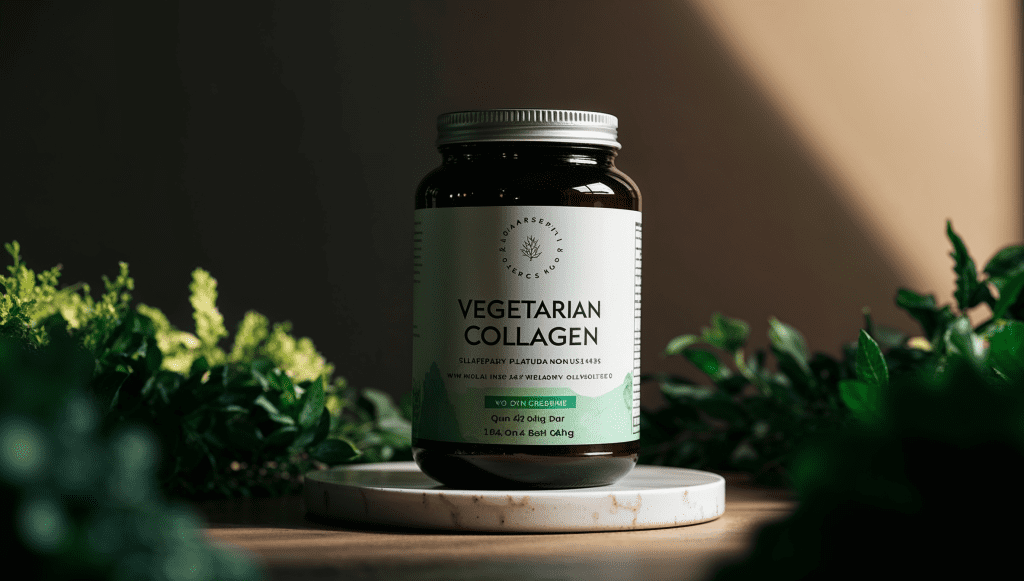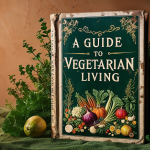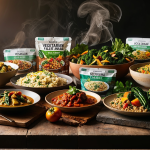
Understanding Vegetarian Collagen: What You Need to Know
Collagen is a vital protein that contributes to the structure and elasticity of our skin, hair, nails, and connective tissues. Traditionally, collagen supplements have been derived from animal sources, such as bovine or marine collagen. However, with the rise of vegetarian and vegan diets, many people are curious about vegetarian collagen alternatives. This article clarifies the concept of vegetarian collagen, its benefits, and effective plant-based alternatives.
What is Collagen?
Collagen is the most abundant protein in the human body, making up a significant portion of our skin, bones, muscles, tendons, and ligaments. It provides strength and support to these structures. As we age, our natural collagen production decreases, leading to signs of aging such as wrinkles and sagging skin.
Is There Such a Thing as Vegetarian Collagen?
The straightforward answer is no—true collagen cannot be derived from plants. Collagen is inherently an animal protein. Therefore, there is no vegetarian or vegan collagen in its pure form. However, there are plant-based products marketed as “vegetarian collagen” or “collagen boosters.” These products do not contain collagen itself but rather ingredients that support the body’s natural collagen production.
Key Plant-Based Ingredients That Support Collagen Production
While vegetarian sources cannot provide collagen directly, certain nutrients can help your body produce it:
- Amino Acids: Essential for collagen synthesis, amino acids can be obtained from plant proteins like legumes, nuts, seeds, and whole grains. Some vegan supplements use fermented yeast or other plant sources to provide these amino acids.
- Vitamin C: This vitamin is crucial for collagen formation because it helps convert proline into hydroxyproline, which stabilizes the collagen structure. Foods rich in vitamin C include citrus fruits, strawberries, bell peppers, and broccoli.
- Silica: Found in plants like bamboo and horsetail, silica supports collagen synthesis and promotes healthy skin and hair.
- Hyaluronic Acid: Often included in vegan formulations, hyaluronic acid helps retain moisture in the skin, contributing to a plumper appearance. It can be sourced from plant-based origins.
- Bakuchiol: A natural alternative to retinol found in some plants that helps reduce fine lines and improve skin texture without irritation.
Popular Vegan Supplements
Due to the growing interest in vegetarian and vegan options, several brands have developed products that aim to support natural collagen production:
- Amazing Grass GLOW: Contains vitamin C from organic acerola cherry to support collagen synthesis.
- Garden of Life mykind Organic Plant Collagen Builder: Uses co-nutrients like silica for skin health.
- PlantFusion Complete Plant Collagen Builder: Combines amla fruit extract with essential amino acids.
- SuperFeast Tremella: A mushroom supplement known for its hydrating properties that support skin elasticity.
Benefits of Plant-Based Alternatives
- Ethical Considerations: Plant-based options align with cruelty-free practices and ethical dietary choices.
- Digestive Health: Many vegetarian sources are easier to digest than animal-derived products.
- Nutrient-Rich: Vegetarian options often come packed with additional vitamins and minerals that support overall health.
While true collagen cannot be sourced from vegetarian options, there are effective plant-based alternatives that can help support your body’s natural collagen production through essential nutrients. By incorporating foods rich in amino acids, vitamin C, silica, and other beneficial compounds into your diet—or by using specialized vegan supplements—you can promote healthy skin, hair, nails, and joints without compromising your dietary preferences. Understanding this distinction empowers you to make informed choices about your health and nutrition!




